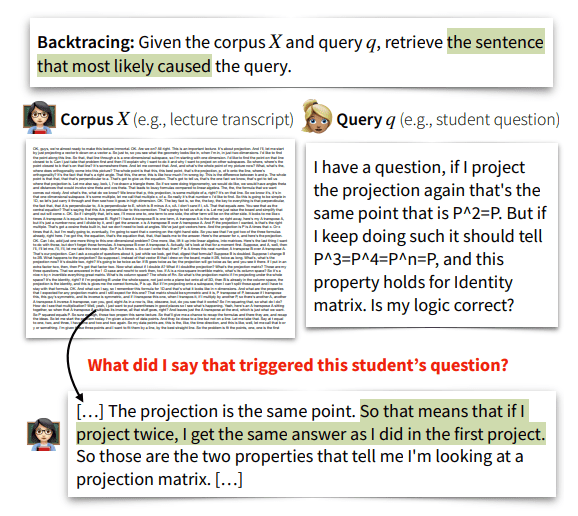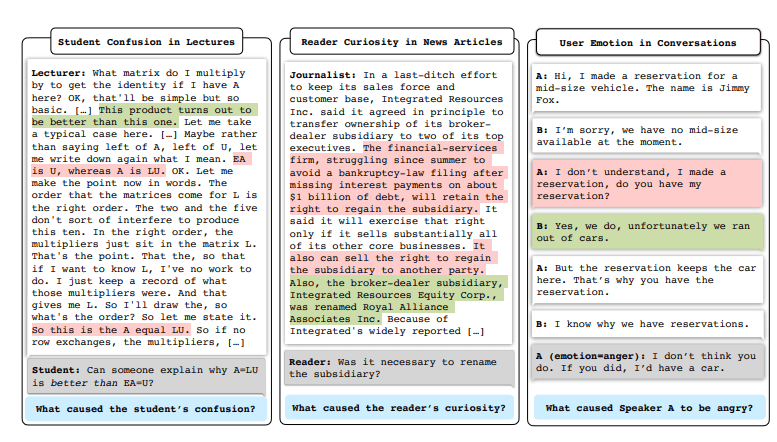
Have you ever watched a lecture online and found yourself scratching your head over a particular concept, prompting you to ask a question in the comments or a forum? Or maybe you’ve been deep into a news article and something sparked your curiosity, leading you to seek out more information. Behind the scenes, a fascinating process is taking place to help content creators understand these moments of confusion, curiosity, or even emotion in conversations. This process is what a team of researchers from Stanford University, including Rose E. Wang, et. al., is exploring through their study on “Backtracing: Retrieving the Cause of the Query.” Let’s dive into what this all means for both content creators and consumers, in a way that’s easy to grasp.
What’s Backtracing All About?
Imagine you’re a teacher, and after a class, you get a bunch of questions from your students. Some questions might make you think, “What did I say that caused this confusion?” Backtracing is essentially the detective work of tracing a question back to the specific part of your lecture that sparked it. The Stanford team is working on making this process easier and automated, helping lecturers, journalists, and even everyday conversationalists understand what prompts certain questions or reactions.
The Challenge at Hand
The tricky part about backtracing is that it’s not always straightforward. The content that causes someone to ask a question isn’t necessarily the one that directly answers it. For example, a student might ask about “projecting multiple times” because of a brief mention by the lecturer that “projecting twice gets the same result as once,” even though the lecture didn’t dive deep into repeating projections.
To tackle this, the research team tested out various methods, including some AI models like ChatGPT (yes, something similar to what’s helping me write this!). They found that while these models are good at finding relevant information, they’re not always great at pinpointing the exact cause of a query. This discovery highlights a need for new approaches that better understand the why behind a question, not just the what.

Why Does It Matter?
For content creators, whether they’re educators, journalists, or anyone else sharing information, understanding the cause of queries is gold. It can help them refine their content, making it clearer and more engaging for their audience. Imagine a lecturer improving their lessons based on the specific points that confused students, or a news website tailoring articles to answer readers’ implicit questions more effectively.
Leave a Reply